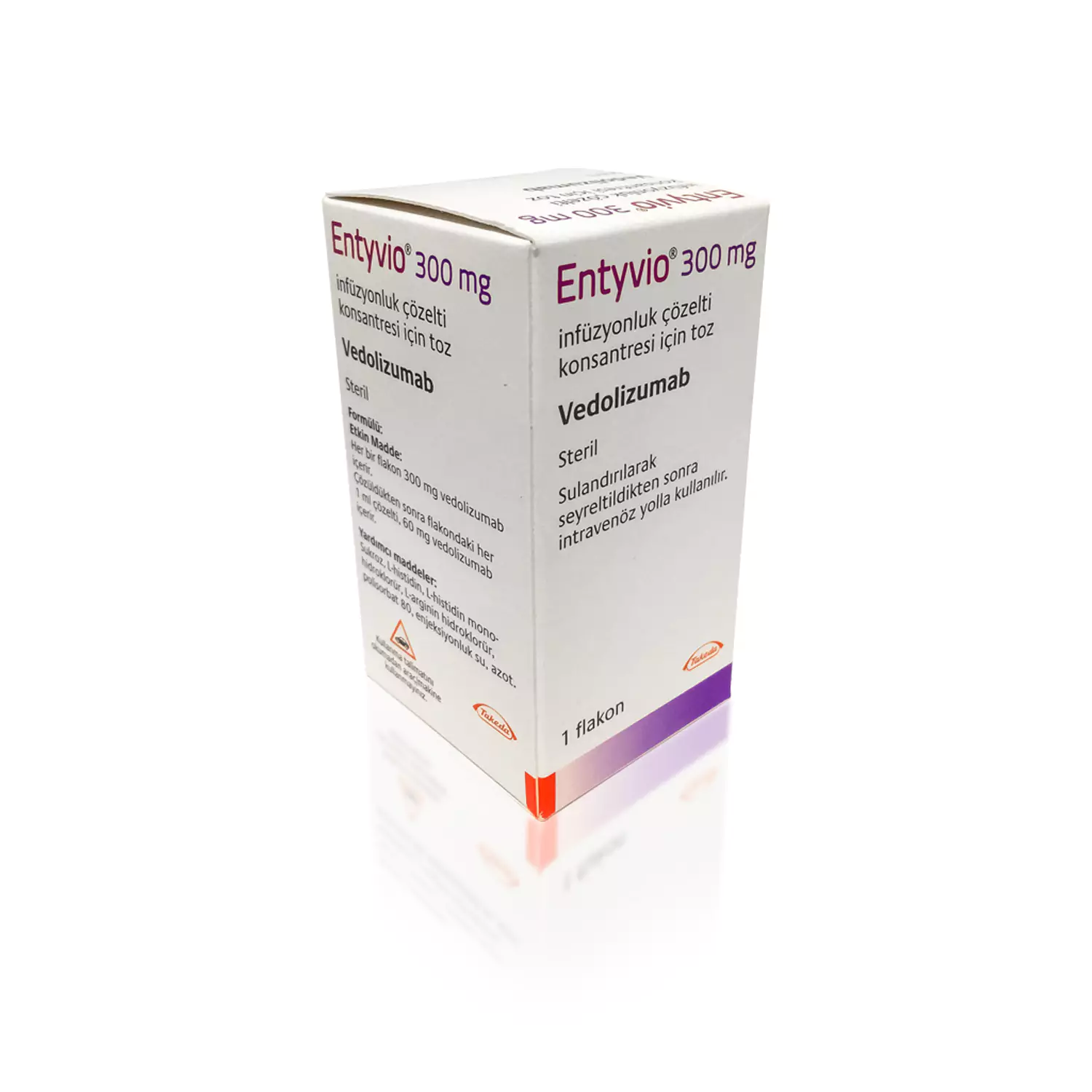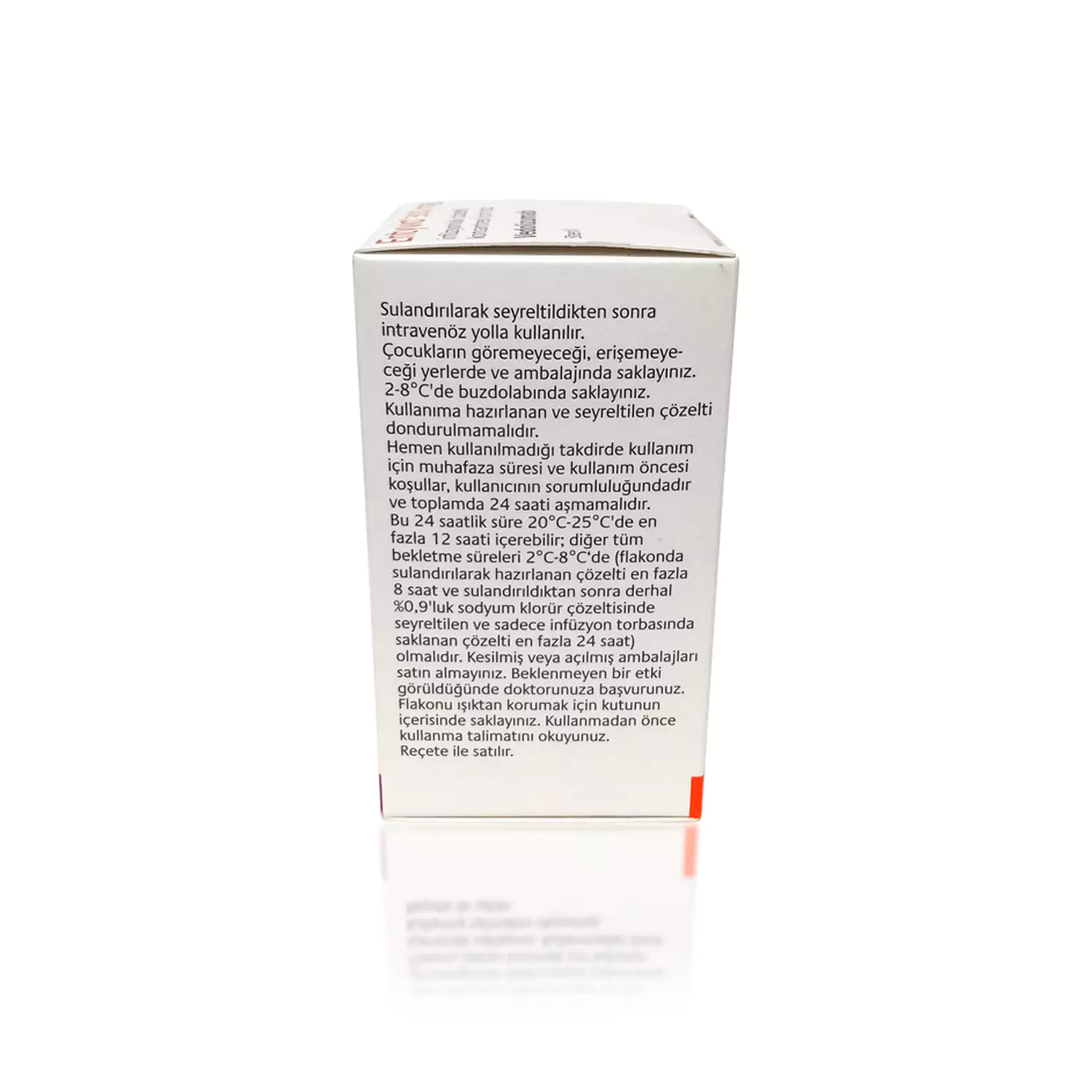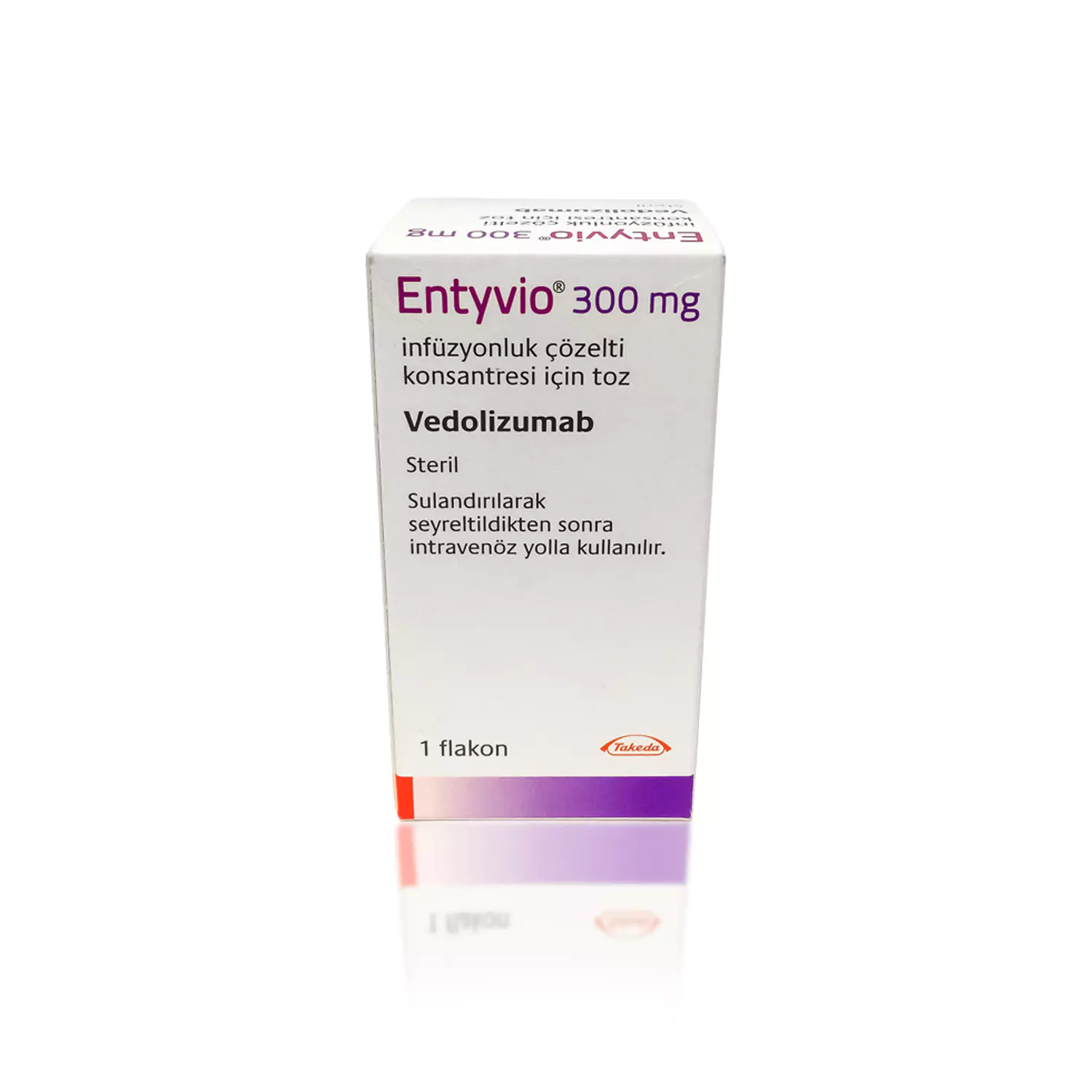Buy ENTYVIO® (Non-English) Online
brand:
ENTYVIO®
manufacturer:
Takeda
active substances:
VEDOLIZUMAB
strength:
300mg
pack size:
1 x 300mg Vial
ENTYVIO® Indications for Use
ENTYVIO® (vedolizumab) is a humanized monoclonal antibody designed to treat chronic inflammatory conditions. It is indicated for:
- Moderately to severely active ulcerative colitis (UC) in adult patients.
- Moderately to severely active Crohn’s disease (CD) in adult patients.
Vedolizumab works by targeting the α4β7 integrin, a protein involved in gut inflammation. It blocks the interaction of α4β7 with mucosal addressin cell adhesion molecule-1 (MAdCAM-1), reducing the migration of inflammatory cells into the gut, thereby controlling symptoms of UC and CD.
ENTYVIO® Dosage Information
ENTYVIO is administered either by intravenous (IV) infusion or subcutaneous (SC) injection, depending on the patient’s condition and response to the medication.
- Intravenous (IV) Dosage for UC and CD:
- Week 0: 300 mg infused over 30 minutes.
- Week 2: 300 mg infusion.
- Week 6: Another 300 mg infusion, followed by infusions every 8 weeks.
- Discontinue treatment if there is no evidence of therapeutic benefit by Week 14.
- Subcutaneous (SC) Dosage for UC:
- After the initial two intravenous doses at Weeks 0 and 2, the maintenance dose is 108 mg administered every two weeks starting at Week 6.
- SC injections can be self-administered or given by a caregiver after proper training.
Preparation:
- For IV use, the drug must be reconstituted and diluted before administration.
- Subcutaneous injections should be checked for discoloration or particulates and administered in areas such as the abdomen, thighs, or upper arms.
ENTYVIO® Side Effects and Precautions
ENTYVIO has several potential side effects, ranging from common to serious. The following are categorized based on clinical data:
- Common side effects (≥3% incidence):
- Nasopharyngitis (13%)
- Headache (12%)
- Fatigue (6%)
- Nausea, upper respiratory tract infections, and cough.
- Serious side effects:
- Infusion-related reactions: These include hypersensitivity, bronchospasm, rash, flushing, and increased heart rate. If such reactions occur, the infusion should be stopped, and the patient should receive appropriate treatment, such as antihistamines or corticosteroids.
- Infections: ENTYVIO increases the risk of severe infections, including sepsis, tuberculosis, and Listeria meningitis.
- Progressive Multifocal Leukoencephalopathy (PML): Though rare, PML is a serious brain infection associated with immunosuppressants. Patients should be monitored for neurological symptoms such as weakness, vision problems, or memory issues.
- Liver injury: Elevated transaminase and bilirubin levels have been reported, and ENTYVIO should be discontinued in cases of significant liver damage.
Precautions:
- Before starting treatment, immunizations should be updated, and the use of live vaccines should be avoided during therapy.
- Patients with a history of recurrent infections or those with active severe infections should be monitored closely, and treatment should be withheld if infections develop.
ENTYVIO® Clinical Studies or Real-World Outcomes
ENTYVIO has demonstrated significant effectiveness in treating both UC and CD, based on large-scale clinical trials.
- Ulcerative Colitis (UC):
- In UC Trial I, at Week 6, 47% of patients receiving ENTYVIO achieved clinical response compared to 26% of placebo patients. 17% achieved clinical remission compared to 5% in the placebo group.
- In UC Trial II, patients who responded to ENTYVIO by Week 6 were randomized for maintenance therapy. After 52 weeks, 42% of patients remained in clinical remission, compared to 16% in the placebo group. Patients also showed improved mucosal healing and reduced dependence on corticosteroids.
- Crohn’s Disease (CD):
- In CD Trial I, at Week 6, 15% of ENTYVIO-treated patients achieved clinical remission, compared to 7% in the placebo group.
- CD Trial III focused on long-term outcomes, showing 39% of patients achieved remission by Week 52, compared to 22% in the placebo group.
In both conditions, long-term studies demonstrated that ENTYVIO helps maintain clinical remission, improves quality of life, and reduces the need for corticosteroids.
ENTYVIO® Drug Interactions
ENTYVIO should not be used in combination with certain immunosuppressants or biologic therapies due to the increased risk of severe infections:
- Natalizumab: A similar integrin receptor antagonist; using both together may increase the risk of PML.
- TNF blockers: Combining ENTYVIO with TNF inhibitors (such as infliximab) raises the risk of infections.
Special Considerations
- Pregnancy: Data from animal studies and limited human studies show no definitive risk of birth defects or miscarriage with ENTYVIO use during pregnancy. However, the effect of vedolizumab on the immune system of the fetus is not fully understood.
- Breastfeeding: Vedolizumab has been detected in breast milk, though the impact on infants is expected to be minimal. The benefits of breastfeeding should be weighed against potential risks.
- Geriatric Use: There is no significant difference in safety or efficacy between older and younger patients, but elderly individuals may be at greater risk of infections.
- Pediatric Use: The safety and efficacy of ENTYVIO have not been established in pediatric patients.


